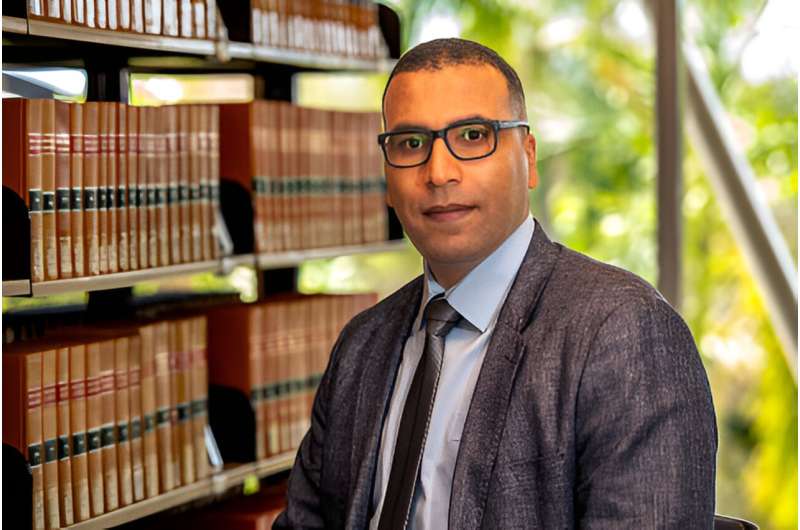This article has been reviewed according to Science X's editorial process and policies. Editors have highlighted the following attributes while ensuring the content's credibility:
fact-checked
trusted source
proofread
Victim-blaming, manipulation, and denial: How terrorists use language to justify violence

Victim-blaming, denial and reversal are among the tactics used by terrorists to justify their violent actions and influence audience perceptions of harm and agency, according to a new Charles Darwin University (CDU) study examining the language of some of the world's most notorious individuals.
The study by CDU Linguistics Lecturer and Forensic Linguistics expert Dr. Awni Etaywe analyzed rhetoric used in texts by Osama Bin Laden, former Boko Haram leader Abubaker Shekau, and Christchurch Mosque gunman Brenton Tarrant.
The article, "Discursive pragmatics of justification in terrorist threat texts: Victim-blaming, denying, discrediting, legitimating, manipulating, and retaliation" was published in the journal Discourse & Society.
The analysis revealed the individuals used a variety of linguistic tactics to justify their respective violent actions such as "discrediting" that is to tarnish a target subject to challenge their credibility and capabilities, "blaming and denying" to shift responsibility and blame onto victims, and "deontic retaliation" which involves a variety of tactics terrorists use to present an act of violence as a justified response or retaliation to a past event or offense.
The analysis also shows the individuals use the "boulomaic function," chiefly via wording such as "want," "wish" and "hope" to express the fantasy desire to cause harm without coercing specific actions.
Dr. Etaywe said while the individuals adopted a variety of the above, all presented themselves positively while portraying victims negatively.
"This approach articulates beliefs advantageous to threateners while discrediting, delegitimizing and blaming victims," Dr. Etaywe said.
"Discrediting is notably prominent in the 'manipulation' by texts of Bin Laden and Shekau to influence victim's behavior through deterrence or compulsion. Bin Laden strategically employs discrediting in his threat texts to sway the American people's trust in their political leadership, particularly the Bush administration's propriety, tenacity and veracity, and to influence anti-war sentiment and stance towards war.
"Shekau's act of discrediting serves to undermine governance and power image in Nigeria. Shekau enhances his own capacity while casting doubt on the victims' capacity, manipulating their perception of his power and his opponents' incapability.
"The boulomaic function is evident in Tarrant's texts. The bursty repetition of the verb 'want' in the context of direct threats emphasizes this strong inclination."
Dr. Etaywe said by examining the texts, it allows experts to understand how threats can force behavioral compliance (through, e.g., manipulation and retaliation) and cause damage to the subjects of the texts, and how threat texts can offer clues to the author's commitment to violence.
"This offers insight to criminal interrogators on why some texts are polarizing, radicalizing and mind-unsettling," he said.
Dr. Etaywe is a leading expert in forensic linguistics focusing on terrorism, cybercrime, and digital deviance. His previous research includes a study examining how terrorists use language to mobilize support and legitimize harm, and a study on how far-right conspiratorial terrorist discourse leverages social bonds to incite hatred and radical actions—that is the role of social affiliation in incitement.
Dr. Etaywe said this analysis helps society to understand how similar linguistic tactics are used by individuals many might not consider violent extremists, such as former President Donald Trump, to influence and manipulate public perception and behavior in contemporary media discourse.
More information: Awni Etaywe, Discursive pragmatics of justification in terrorist threat texts: Victim-blaming, denying, discrediting, legitimating, manipulating, and retaliation, Discourse & Society (2024). DOI: 10.1177/09579265241251480
Provided by Charles Darwin University



















